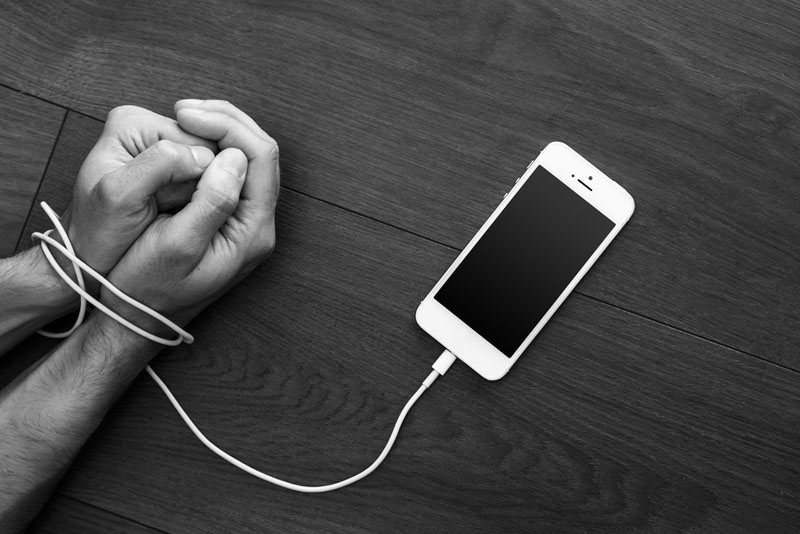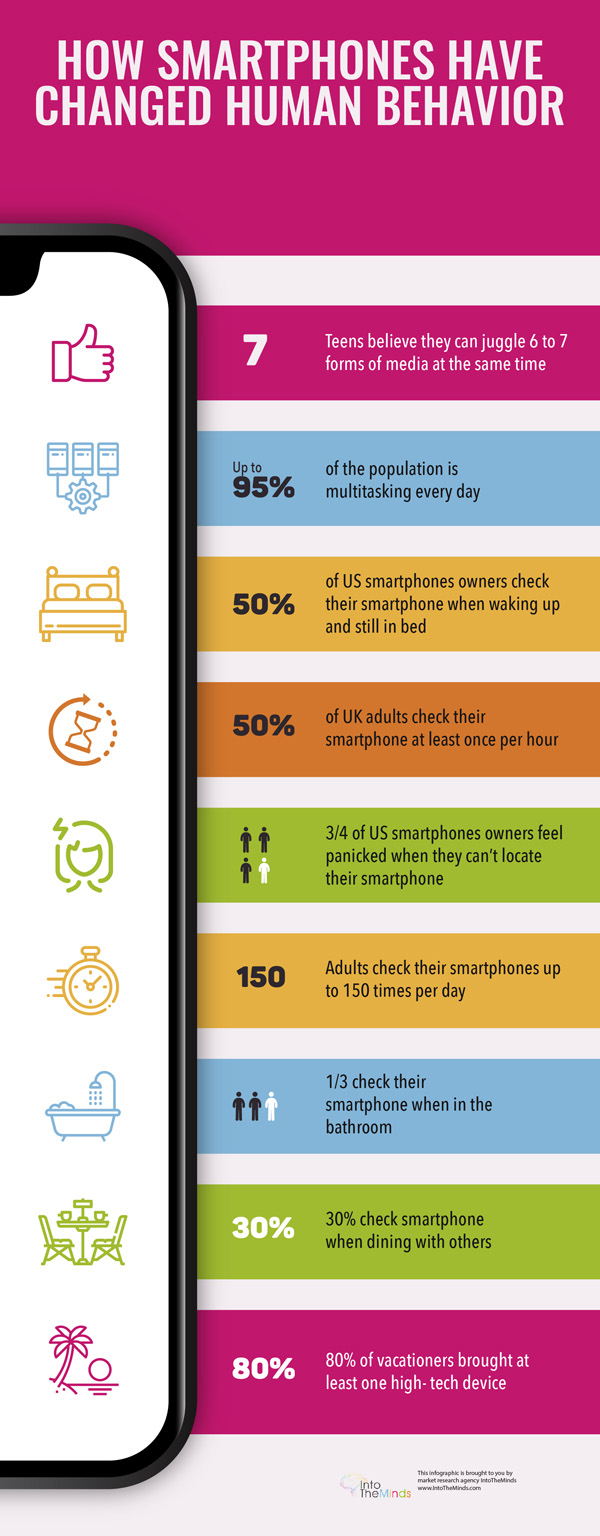
You probably won’t read this article up to the end. And that’s because of smartphones. Smartphones have changed our lives. For the good but also for the worse. This article is not about the positive contribution of smartphones to our lives, it’s about its pervasive effects on our behavior and in particular on how it changes the way our brain works. “I want my life back” was the starting point of my quest for a better future, a future where I won’t be the slave of my smartphone anymore. In today’s post I have compiled some facts that prove that we’ve become slaves of our smartphones.

The problem in brief
Smartphones are so addictive because they activate the reward system. Well, actually it’s not the device itself that does that. It’s the apps that are installed on it and Chamath Palihapitiya, former VP at Facebook, admitted he felt guilty for how Facebook “enslaves” us. What’s at the heart of the problm is the so-called reward system. Watch his interview (below, from 3’50″”) where he deals with the implementatio of the reward system in Facebook’s products.
The reward system ” reinforce[s] the association between a particular stimulus or sequence of behaviors and the feel-good reward that follows. Every time a response to a stimulus results in a reward, these associations become stronger through a process called long-term potentiation” (source : Harvard graduate school of Arts and Science).
Why are we checking smartphones so often?
We are information foraging animals to borrow the words of Adam Gazzaley and Larry D. Rosen (read their book). It’s the combination of information foraging habits and the avoidance of boredom that makes us check our smartphones so often. We ned novelty to fight our boredom and smartphones are open doors to a virtual world where information flows continuously.
Consequences of smartphone addiction : multitasking
The consequence is that we check our smartphone frequently in search of the latest bit of information to get our shot of dopamine. This has led to a phenomenon of multitasking that everyone knows very well. We can’t resist anymore the temptation to switch task, to check our smartphone while someone is speaking or when we are engaged in a demanding task. This in turns influences our capacity to focus and decreased our productivity. Why is that ? Simply because the human brain is not designed to be good at multitasking. You can’t believe me ? Chck this video. It will prove you that our brain can’t focus on two tasks at a time.
Facts and stats on the influence of smartphones on our behavior
Here are some stats on how we use smartphones. These stats clearly show that our lives are heavily under the influence of this device and that our behavior has been changed dramatically.
- teens believe they can juggle 6 to 7 forms of media at the same time
- Up to 95% of the population is multitasking every day
- adults are checking up to 150 times their smartphone per day (every 6 or 7 minutes)
- in the UK more than 50% of adults check their smartphones at least once per hour
- 3/4 of US smartphones owners feel panickd when they can’t locate immediately their smartphone
- 50% of US smartphones owners check their smartphone when waking up and still in bed
- 1/3 check their smartphone when in the bathroom
- 3/10 check smartphone when dining with others
- 1/3 of adults check their phone immediately after they receive a notification
What can we do ?
This question only holds if you want to change your behavior, in other words if you have recognized that your current behavior is a problem. Most people won’t recognize it as a problem actually. You must be very though to be willing to change and I know CEO’s and so-called “top managers” who find it perfectly fine to have an attention span of a few seconds. If you have read this article you actually have the first step behind you. You are conscious of the problem and those few lines explained you the reasons behind the symptoms you observed.
image : shutterstock
Posted in Research.

